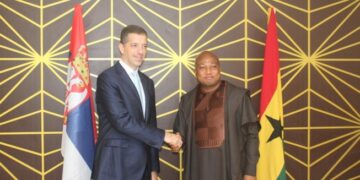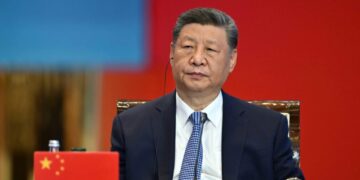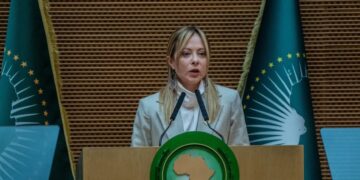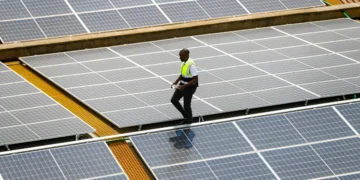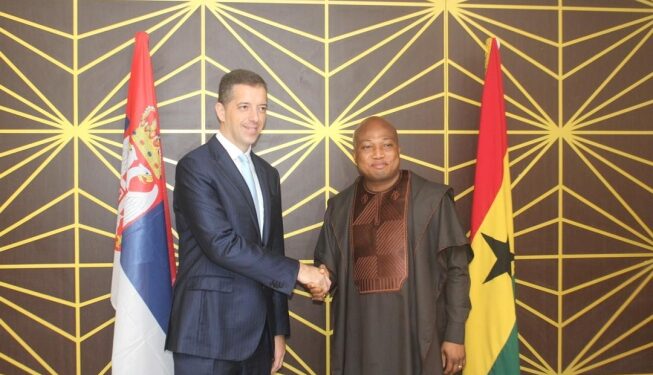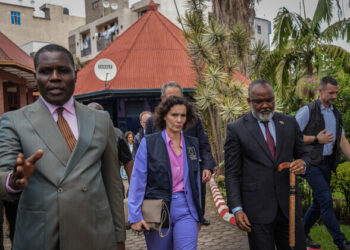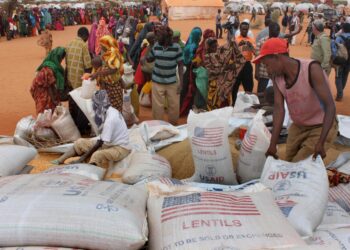By Emmanuel Nduka
Ghana and Serbia are set to formalize a partnership on labour mobility through the signing of a Memorandum of Understanding (MoU), enabling Ghanaian workers to tap into Serbia’s 100,000 work permit programme this year.
This was announced by Ghana’s Minister for Foreign Affairs, Samuel Okudzeto Ablakwa, following a closed-door meeting with his Serbian counterpart, Marko Đurić, in Accra on Thursday.
The Serbian minister is on a three-day working visit to Ghana.
According to Ablakwa, the agreement is designed to foster stronger people-to-people ties and unlock employment opportunities for Ghanaian youth across various sectors. Ghana will become the second African country, after Egypt, to benefit from Serbia’s labour mobility initiative.
Ghana said the new MoU builds on growing diplomatic relations between Ghana and Serbia, with focus areas including lithium exploration, artificial intelligence, maritime security, and defence cooperation.
“Serbia holds 11 per cent of the world’s lithium deposits, and we have agreed to share technical expertise for exploration and development,” Ablakwa stated.
He added that both countries are deepening collaboration in artificial intelligence, aligning with Serbia’s leadership role in the Global AI Initiative and Ghana’s domestic programmes like the One Million Coders Initiative and the $1 billion Innovation Hub.
On defence, the Minister revealed plans to enhance cooperation aimed at strengthening the Ghana Armed Forces’ capacity to counter terrorism threats from the Sahel.
Ablakwa also announced new scholarship opportunities for Serbian students to study African Sociology and African Studies at the University of Ghana.
Additionally, he commended Serbia’s continued support for Ghana’s maritime infrastructure, particularly the upgrade of the Vessel Traffic Management and Information System by Serbia’s Vlatacom Research and Development Institute. The new system will boost Over-the-Horizon (OTH) surveillance along Ghana’s coastline.
In his remarks, Serbian Foreign Minister Marko Đurić expressed confidence in the mutual benefits of closer ties with Ghana, describing the West African country as “a key regional ally.”
He praised Ghana’s 24-hour economy agenda as “inspiring,” and said it offers significant potential for Serbian and European businesses to engage with the Ghanaian economy.
Đurić also disclosed plans to expand cooperation in agriculture, sports, and defence, noting that he would meet relevant ministers during his visit.
He revealed that Serbia had awarded 51 scholarships to Ghanaian students to pursue higher education in various disciplines, and that an additional 30 scholarships would be offered later this year as part of the growing bilateral partnership.
